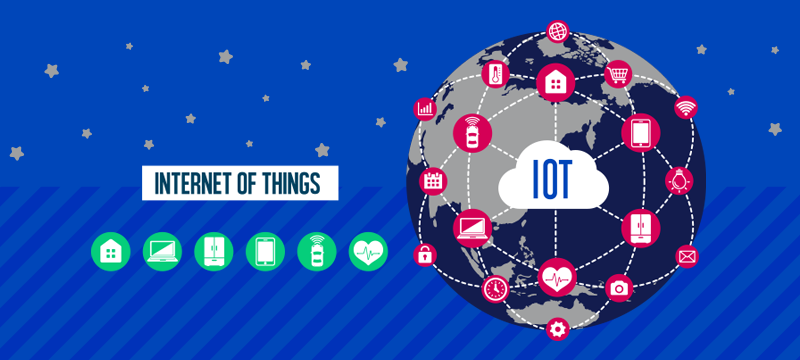Globally, there are now 7 billion IoT devices in use and that doesn’t include smartphones, computers or tablets. By 2025, that figure is set to rise to 22 billion – a staggering number of connected devices, all capable of gathering rich data and providing communication channels between businesses and consumers. Indeed, the IoT is already providing eCommerce companies with a range of benefits and in this post, we’ll look at what they are.
- Inventory intelligence
The IoT provides eCommerce companies with a range of data and intelligence for improved operations. One key area is real-time inventory tracking. The use of IoT sensors in warehouses ensures accurate information is always available about which products are in stock, which need reordering and for those selling items with limited shelf-lives, which are out of date. And all this can be achieved with the absolute minimum human input. Bluetooth or RFID chips can be attached to individual items or to batches and these are read by sensors which are linked to the inventory system over the internet. Even if a company has warehouses across the globe, all items regardless of location can be tracked on a single system. - Improved productivity
Still in the warehouse, IoT can help with more than just inventory tracking. It can, for example, be used to track and monitor a variety of other things, such as ensuring temperatures and humidity are at the right levels to prevent damage to items or to monitor the health of critical machinery without the need for human inspection.
It can also be used to track the speed and efficiency of picking and despatching items and can even locate items for picking so much so that some eCommerce companies use IoT enabled robots for this process. - Delivery tracking
Delivery has always been one of the biggest issues with buying things online. Problems with getting the item delivered on time, in one piece and when someone is in to sign for it have been real challenges. The use of IoT sensors that use RFID and GPS technology means most major delivery companies now have a means of letting you and your customers know where the product is and when it will be delivered. It even gives the flexibility to reschedule if necessary.
In addition, this technology also enables companies to create faster delivery schedules which use less fuel, making them cheaper and more environmentally friendly. - Dash buttons
Dash buttons are IoT devices which enable customers to buy a specific product just by pressing them. Originally an idea used by Amazon, which has now stopped issuing them, they may be more useful to retailers who specialise in selling particular consumable products, such as printer cartridges, razor blades, logs for wood stoves, etc. - Enhanced customer experience
Dash buttons are just one of the many ways that IoT is helping to improve the customer experience. IoT devices are capable of gathering immense volumes of data which can be used and analysed, alongside data from other sources, to help better understand how customers use their products and delivery services and how they can be improved.
At the same time, companies can track the customer’s preferences for specific products or brands, analyse order histories and interpret shopping behaviours. They can use this data to increase user engagement and provide personalised shopping experiences that will lead to higher sales.
With some products, IoT can be used after the sale has been completed, for example, it can monitor the health of a product and inform the customer if a repair needs to take place. The same goes for products which use consumables an IoT air freshener, for example, can let the company and the customer know when a refill is needed. If the company knows a refill order is imminent, it can automate the dispatch of a special offer to the customer in advance.
The need for cloud hosting
As all the information collected from IoT devices is transmitted over the internet, public cloud hosting is the most obvious choice for the applications needed. And, to take full advantage of the IoT, eCommerce companies need to have the capacity to collect, store and analyse the real-time data that they are gathering. Again, this is best suited to the public cloud which provides them with the agility and scalability to tackle the big data tasks quickly whilst also ensuring they only pay for IT resources as and when they use them.
Conclusion
From the warehouse to aftersales, the IoT is transforming how eCommerce companies operate. It helps them to better understand their customers and improve the way they do business, whether that is in inventory management, dispatch, marketing, sales or business development.
If you are considering using the IoT and are looking for public cloud hosting, check out our cloud hosting solutions.


